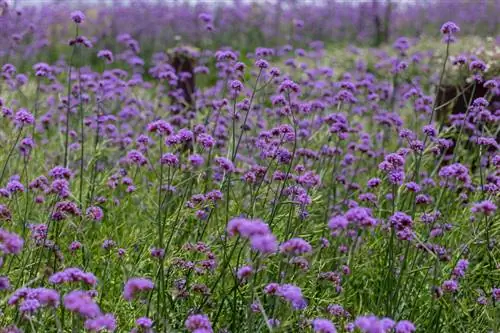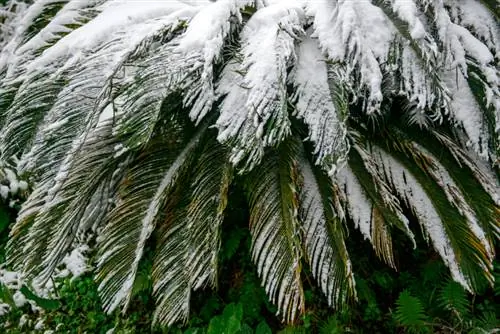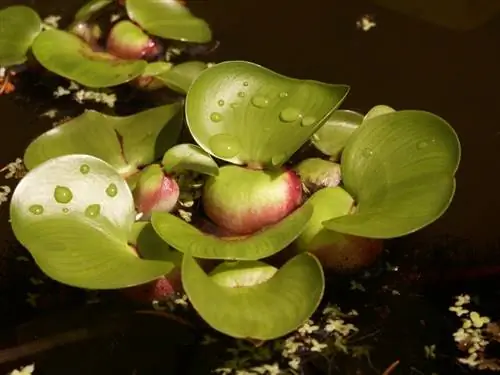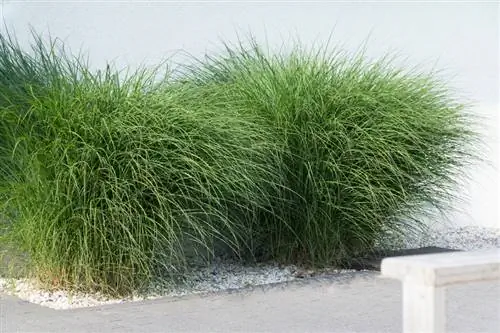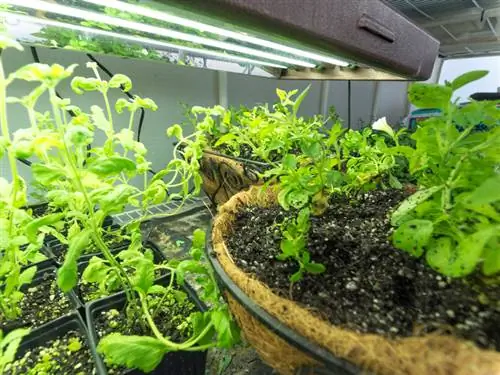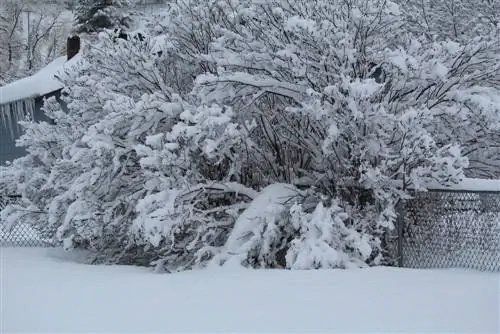- Author admin leonars@hobbygardeners.com.
- Public 2023-12-16 16:46.
- Last modified 2025-06-01 06:02.
The last flowers have said goodbye. Autumn is now approaching and the cooler days are quickly approaching. But what will happen to the verbena now? Will it survive the cold season?
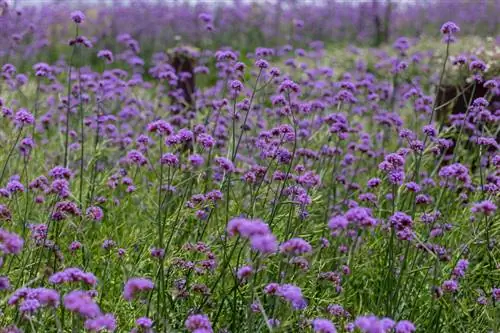
Which verbena plants are hardy and how can you overwinter them?
There are some winter-hardy verbena species, such as vervain (Verbena officinalis), Verbena hastata and Verbena canadensis (with winter protection). Other verbena plants should be brought indoors in the fall or covered with a protective blanket in the garden.
Verbena - the sensitive flowering perennials
As a rule, the majority of verbena trees, which originally come from South America, cannot tolerate frost. As soon as the thermometer reads a few degrees below 0, this could mean the end of the verbena. In this country, these plants are usually annual and not perennial.
Are there winter-hardy verbena plants?
But there are types of verbena that can survive the winter without any damage. They can live in their location for up to three years. Examples of such types are:
- Vervain aka Verbena officinalis
- Verbena hastata
- Verbena canadensis (with winter protection)
How to get verbena over the winter?
The frost-sensitive verbena can get you through the winter. But is this effort worth it? Since verbenas are easy to sow and like to multiply through self-sowing, it is not worth overwintering them.
If you still plan to do this - for verbena on the balcony: Bring the verbena into the house in October before the first frost. Radically cut off the shoots to just above the ground. Choose a cool, light and airy room to accommodate her. Water regularly but sparingly until spring. From May the verbena can be brought back onto the balcony.
For verbena plants outdoors or in the garden: Cut off all above-ground parts of the plant in autumn. Cover the root area thickly with leaves or brushwood. In spring, remove the protective cover and fertilize if necessary.
Tips & Tricks
Since overwintering verbena requires effort, it is advisable to sow this plant every year. Balcony plants in particular take up a lot of space in your home during the winter period and require a regular supply of water.

